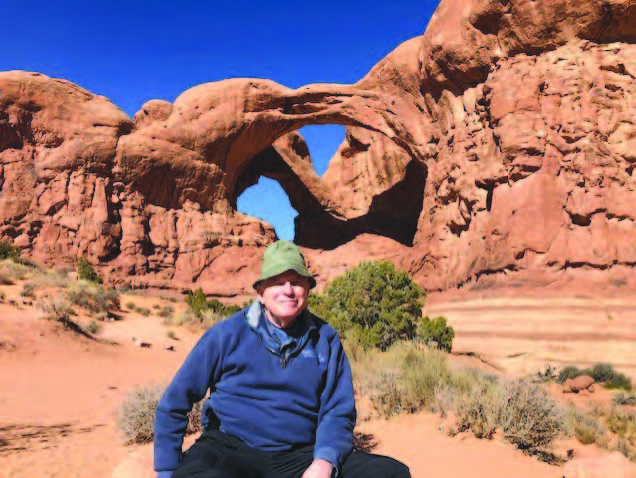Serendipity. It is often called by other names: Karma, chance, good luck, the hand of God. Some lucky soul comes across something that changes his or her life, and perhaps the lives of others. We all wish for that lucky occurrence.
But how does serendipity differ from pure luck? Luck usually just happens to someone, whereas serendipity involves an unexpected event that requires involvement, or agency, on the part of that individual. Luck is receiving a check in the mail from a family member for $5,000; serendipity is observing a leaf on the ground, being curious, and picking it up, only to find a rare coin, and taking the initiative to research and sell it for $5,000.
Recorded cases of serendipity most often involve historically significant scientific discoveries. This is not surprising, given the fact that scientists are specifically trained in being observant and in rigorous scientific method when unexpected events occur. Louis Pasteur said, “In the field of observation, chance favors only the prepared mind.”
But it is clear that cases of serendipity go far beyond the occasional monumental (or sublime) well-documented scientific discovery. Discoveries involving archeology, geology, law, and even foods abound in the written record. What originally prompted me to write a book was the recognition that my life was filled with such everyday serendipitous occurrences, many of them having a profound effect on both my career and my personal life. When I asked my family and friends about this, everyone recalled similar occurrences in their lives and careers. It is my firm belief that everyday types of serendipity are all around us. The problem is that many people overlook the opportunities that are presented to them.
The challenge, then, is to obtain the skills that are necessary to recognize unexpected events when they occur. But what skills are we talking about? The first thing one must do is to be ready when that unexpected moment occurs. The skills that are needed include having self-awareness and a sense of optimism, that is, the belief that serendipitous moments are happening frequently to all of us. Then one must have observational skills to be able to recognize the sight, or conversation, which needs exploration. It continues with a sense of curiosity, that is, asking the question why did this occur, or how did it occur. And then one needs to be able to make connections to previous learning and experiences. All of these skills are obtainable.
Once you have recognized that there is an unexpected event that has occurred, further research or work on the idea or product must occur. First, you need to do a thorough analysis, in order to determine whether this event is something that can be meaningful to you and/or to society. Once you have decided that this is the case, you must have conscientiousness and persistence, sometimes even in the face of adversity.
So how does this work? Let’s take one famous example from history. In the scientific world, a perfect example of this is the discovery of penicillin by Sir Alexander Fleming. Fleming was a British physician and microbiologist who was studying the properties of Staphylococci, a bacterium that at the time resulted in many deaths across the globe. Fleming was away on vacation, having left a number of Petri plates filled with agar on which Staphylococci were growing. He was trying to see how the bacteria grew in natural conditions, without the lids that usually were placed over the Petri plates.
Unfortunately, while he was away, someone had accidentally left a window open in his laboratory. When Fleming returned, he realized that the plates were contaminated with spores of mold, and that he would have to start over. He believed the cultures were ruined. Fleming was about to toss out the plates when he suddenly stopped, realizing that the plates had clear rings around spaces where mold had landed on the agar growth medium. This was the unexpected event, and Fleming, with good observational skills, was able to recognize those rings.
But the next thing that Fleming must have asked himself was how had the mold created this effect on the Staphylococci? This is where his curiosity played an extremely important role in what later occurred. Fleming needed to know what was occurring. Fleming also had to keep an open mind. Something was happening that was unexpected. If he simply refused to believe that anything good could come of mold contaminating his Petri plates, he would not have proceeded further.
And finally, Fleming made the connection that the mold had to be producing some chemical or enzyme that was not only inhibiting the growth of the bacteria, but also actually killing them. It was only then that Fleming could get started in exploring what that chemical or enzyme was. After many years of research into the phenomenon, Alexander Fleming was able to put it all together and come up with the discovery of penicillin.
All of us have had similar, though likely less notable, instances of unexpected events in our lives that might have gone unnoticed. But with some training and practice, we can more readily recognize them and use them in order to improve our lives and careers.
Excerpted from Serendipity. Recognizing and Utilizing Common Everyday Events to Enhance Your Life and Career, by Neil J. Farber, M.D. © 2020 Neil J. Farber.
Neil J. Farber, MD is a retired academic internal medicine physician. He practiced medicine for 40 years, teaching, researching and providing patient care in medical schools initially on the East Coast. For 12 years, Dr. Farber was Professor of Clinical Medicine at University of California, San Diego, retiring in 2019. His academic interests are in education and teaching, especially in regards to patient-physician communication skills and medical ethics. He has received numerous awards, including Top Doctor of San Diego five times, and is a member of the FDA Non-Prescription Drug Advisory Committee. He has published over 60 research papers, and has recently published a book entitled, Recognizing and Utilizing Common Everyday Events to Enhance Your Life and Career. His website with a link to his blog is neiljfarber.com and he is also on Facebook.

















